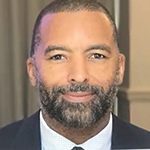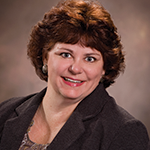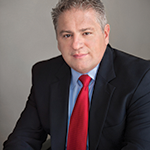
JOHN BIRDSALL SOCIAL ISSUES PHOTO LIBRARY / Science Source
As practice administrator for the past nine years at Emerald Coast Rheumatology in Lynn Haven, Fla., Andre Smith has worked to expand what was a single-provider, three-employee practice into an 8,000-square foot rheumatology clinic and 18-chair infusion center with two additional providers.
Although not all rheumatologists have a practice administrator on staff, those who do often find their practice runs more smoothly. Rheumatologists can delegate responsibilities, including finances, employee training and development, and billing, to their practice managers, leaving them more time to focus on providing optimal patient care.
With the healthcare field constantly evolving, practice managers must also stay up to date with new technology, government regulations and rules on reimbursement.
The Rheumatologist spoke with rheumatology practice managers from across the country to learn how they work in an interdisciplinary team, and partner with doctors to improve efficiency and drive better patient outcomes.
A Seamless Process

Mr. Smith
Mr. Smith sees his role as the practice’s problem solver. He works as a liaison with insurers so patients get the treatments and medications their rheumatologist wants them to have, even if this means appealing rejected claims.
“Lynn Haven is a very small town, and I regularly interact with our patients,” Mr. Smith says. “I work to ease their fears around medication costs and, in some cases, reassure them if they’re feeling stressed before undergoing an infusion.”
Mr. Smith, who came to the practice with a background in commercial real estate appraisal and management, believes a good practice manager should have strong analytical and business skills, as well as lots of patience.
“As a member of the ACR/ARP and a board member with the National Organization of Rheumatology Managers, I’m fortunate to have access to other rheumatology practice managers across the country,” Mr. Smith says. “There are always colleagues available to answer questions on payer policy changes, the best way to add a new physician to the practice or how to handle a difficult employee.”
Navigating Change

Ms. Ellis
On any given day, Nancy Ellis, practice administrator at the Piedmont Arthritis Clinic, Greenville, S.C., may be juggling operations, budget and finance, and human resource issues—various aspects of overseeing the practice.
“On a typical day, I may review contracts from insurance payers to determine if we want to join their network or examine distributor costs for medications and negotiate to get lower prices,” says Ms. Ellis.
She also works to ensure every patient has a positive experience and to assist those who have concerns about their cost of care. “As a private practice, I think we can provide that personal care to patients that often gets lost in a bigger clinical setting,” Ms. Ellis says.
Ms. Ellis, who has a master’s degree in business and health administration, joined the private practice 10 years ago. She says Piedmont Arthritis is the only freestanding private rheumatology practice left in upstate South Carolina.
Building Relationships
Heather Goodwill, practice manager at the Arthritis Center of Lexington, Ky., says a large part of the practice manager’s job involves building relationships with patients, insurers, hospitals and staff.
“By building a relationship with insurers, we can bypass the 800-number and usually have concerns or issues expedited,” says Ms. Goodwill. “We also have a number of elderly patients who need assistance choosing the best insurance policy. They may see a plan that is less expensive, but don’t realize the costs of medications aren’t covered.”
Ms. Goodwill also oversees staff training and recently joined forces with Pfizer to offer its staff sensitivity training on what it’s like to live with a rheumatic illness.
“By wearing flotation devices on their arms, they could experience how challenging it is to go about daily tasks when you have limited range of motion,” says Ms. Goodwill. “Another exercise required wearing vision impairment glasses to learn what it’s like to live with macular degeneration.”
Although staff members had previously been sympathetic to patient conditions, Ms. Goodwill says the training led to conversations about how staff might intervene to make office visits and other services easier for elderly patients.
Best Practices

Mr. Waldrup
Practice growth is another area where practice managers can play a role. When Ray Waldrup joined Low Country Rheumatology in 2009 as practice manager, it comprised four rheumatologists and 25 employees in a single location. Mr. Waldrup helped grow Low County Rheumatology into Articularis Healthcare Group, the largest rheumatology practice in the U.S. today, with offices in South Carolina, Georgia and Florida, and between 200 and 300 employees.
Networking with other practice managers through the ACR/ARP offers a chance for practice managers to learn about best practices they can implement into their own practices. For example, Mr. Waldrup says his practice deals with patient cancellations by using an automated system that sends a text message to the next patient on the wait list when a patient cancels their appointment.
“Patients have 15 minutes to respond. In the event they don’t, the system contacts the next patient on the waiting list,” he says.
Mr. Waldrup’s practice has also solved the problem of the logjam that often occurs when refilling patient prescriptions.
“Often, pharmacies tell patients they need to get their doctor’s approval before a prescription is refilled,” says Mr. Waldrup. “This can result in a rheumatology practice receiving 50–100 sheets on their fax machine or numerous robocalls from the pharmacy requesting physicians fill a patient’s script.”
To solve these issues, Mr. Waldrup’s practice now offers patients a refill request line and an online portal where they can renew prescriptions in a timely manner.
Linda Childers is a health writer located in the San Francisco Bay Area.

